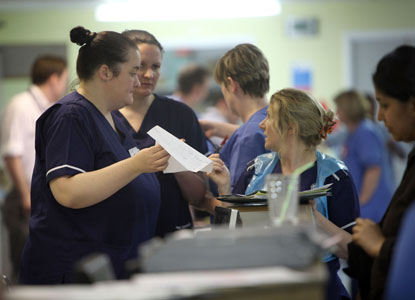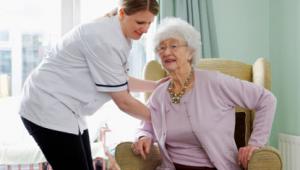By Richard Johnstone | 2 April 2013
The Department of Health has accused Unison of ‘scaremongering’ after the trade union warned that patients and staff would suffer from the controversial changes to the NHS in England.

On the day many of the reforms in the 2012 Health & Social Care Act came into effect, including the establishment of 211 Clinical Commissioning Groups, Unison said the health service was ‘perilously underprepared’.
The union, which represents 450,000 health care workers and has been helping staff move to the new commissioning groups, said there would be a ‘huge loss of skills and expertise’ following yesterday’s abolition of primary care trusts.
Christina McAnea, the union’s head of health, said the impact of this would be felt across the NHS for many years to come.
She highlighted that between August 2011 and November 2012, 8,273 people left the NHS and were not replaced, including more than 7,000 nurses.
‘These reforms have got all the hallmarks of an April Fools’ joke but no one should be laughing. They’ve not only thrown the NHS into chaos, they’ve wasted billions, and are in serious danger of losing the national from our national health service,’ McAnea added.
‘When the Tories took office, satisfaction with the NHS was at an all-time high and waiting lists at an all-time low. In just three years, they have turned this progress around. It is deeply worrying that things are only going to get worse.’
However, a Department of Health spokesman said the union was ‘scaremongering and simply wrong’.
The changes should save £5.5bn during this Parliament and £1.5bn every year thereafter, which would be reinvested in patient care, he added. ‘There are examples up and down the country of Clinical Commissioning Groups improving care, all being achieved because care is being directed by the health care experts who know patients best,’ he said.
As part of the reforms, councils yesterday assumed responsibility for spending on public health. The Local Government Association said town halls were ready to take responsibility for tackling the health impacts of smoking, alcohol abuse and obesity.
David Rogers, chair of the LGA’s community wellbeing board, said the return of public health to local government was an opportunity to tackle the social and economic causes of ill health.
Around 3,500 NHS staff members have been transferred to the 152 unitary and county councils taking on the role. The authorities have also set up Health and Wellbeing Board, whose role is to ensure CCGs are democratically accountable and make medically informed decisions about the health needs of local residents.
‘In Victorian times, local government pioneered and introduced the provision of clean water, universal education, decent public housing, food inspection and the detection and treatment of infectious diseases,’ Rogers said.
‘In the twenty-first century we are ready to build on this great tradition and take on a critical leadership role in improving the nation’s health.
‘These are tough times for local government financially, but we believe we have the experience, the enthusiasm and the knowledge of local needs to create a more locally responsive and accountable public health system that can help us all live healthier lives.’




















